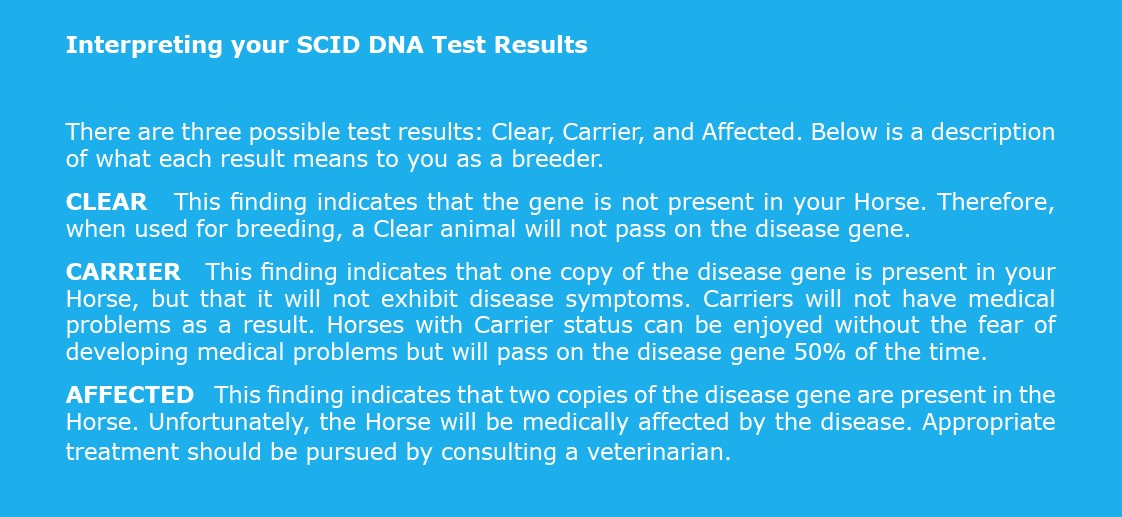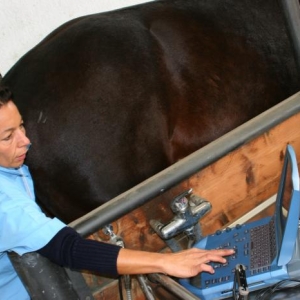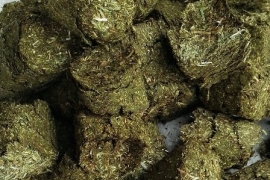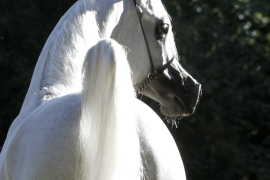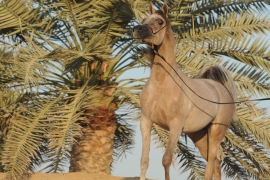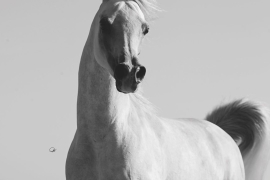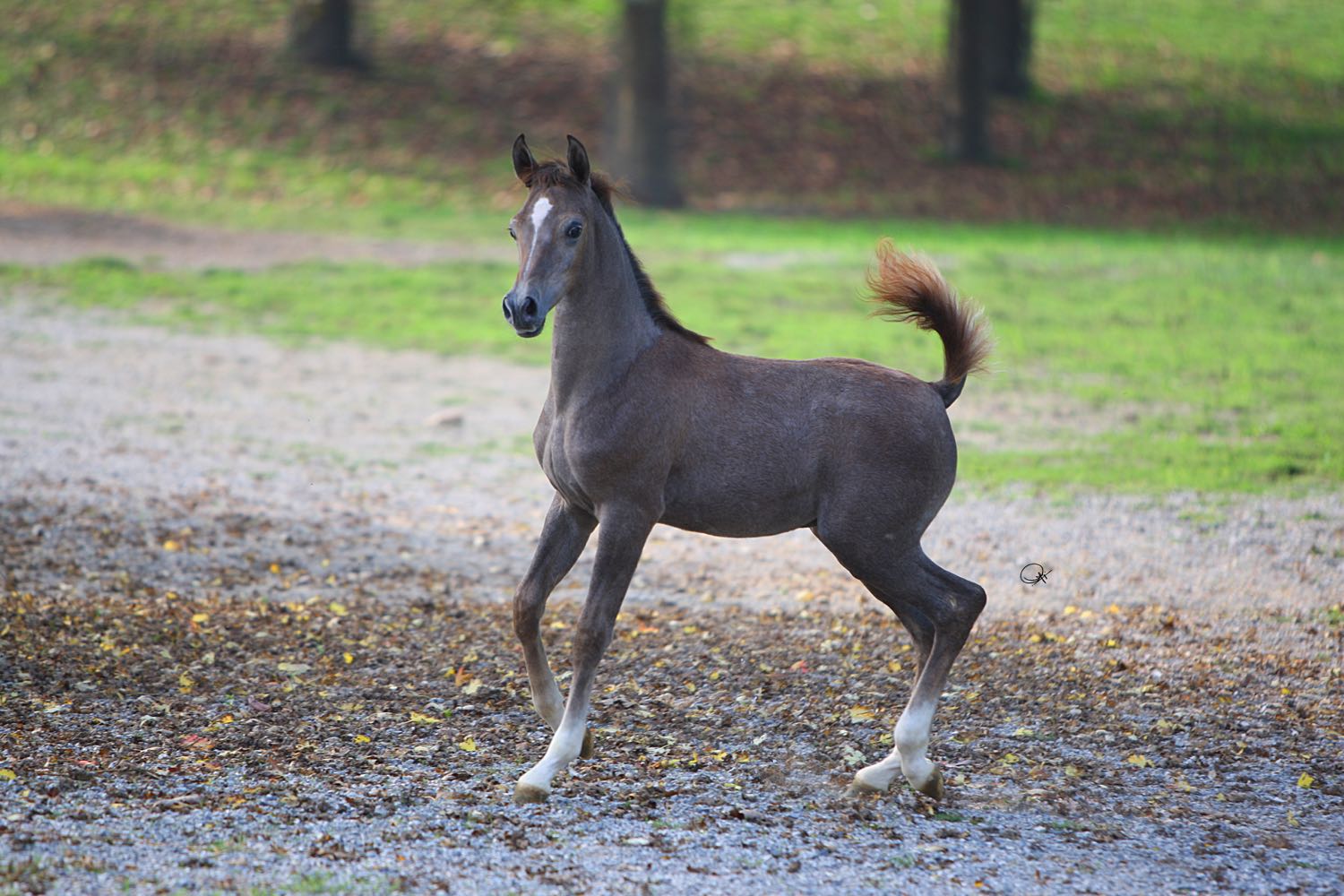
Photo: Gigi Grasso
SCID is one of six genetic diseases known to affect horses of Arabian bloodlines, and there is a DNA test to determine if a given horse is a carrier of the allele. There are other genetic diseases that affect other horse breeds, and horses of part-Arabian bloodlines can be carriers of SCID. Studies from a little less than 30 years ago indicated that the frequency of affected Arabian foals was around 3%. This places the carrier frequency at about 28% and means that one out of every three or four adult Arabian horses is carrying the gene for this deadly disease. Another way of stating this is that 7-10% of all matings are between carriers, and thus this proportion of matings is at risk to produce a foal that will soon die from SCID.
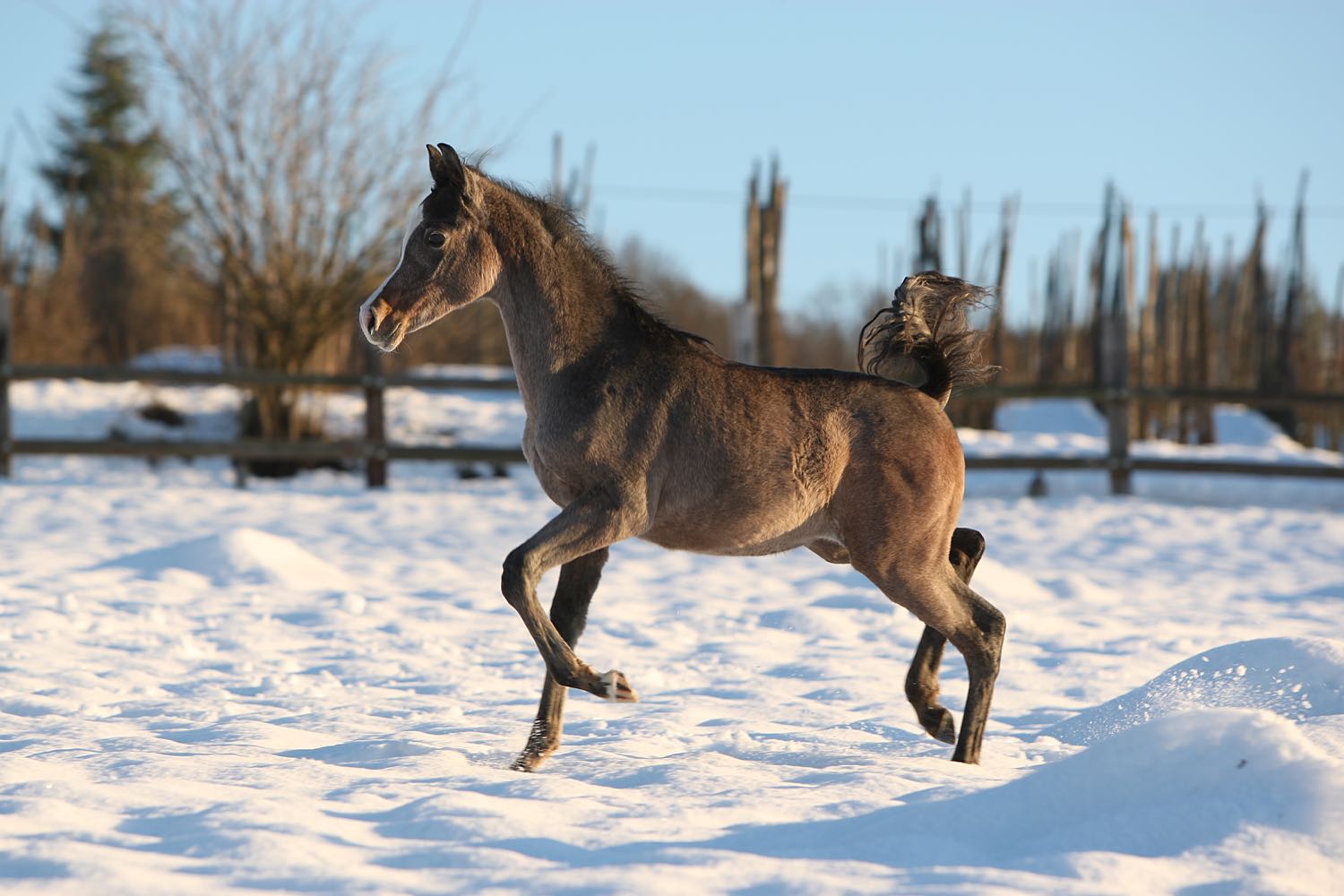
Photo: Gigi Grasso
Unlike SCID in humans, which can be treated, for horses, to date, the condition remains a fatal disease. When a horse is heterozygous for the gene, it is a carrier, but perfectly healthy and has no symptoms at all. If two carriers are bred together, however, classic Mendelian genetics indicate that there is a 50% chance of any given mating producing a foal that is a carrier heterozygous for the gene, and a 25% risk of producing a foal affected by the disease. If a horse is found to carry the gene, the breeder can choose to geld a male or spay a female horse so that they cannot reproduce, or they can choose to breed the known carrier only to horses that have been tested and found to be "clear" of the gene. In either case, careful breeding practices can avoid ever producing an SCID-affected foal.
There is a DNA test that can detect healthy horses who are carriers of the gene causing SCID, thus testing and careful, planned matings can now eliminate the possibility of an affected foal ever being born.
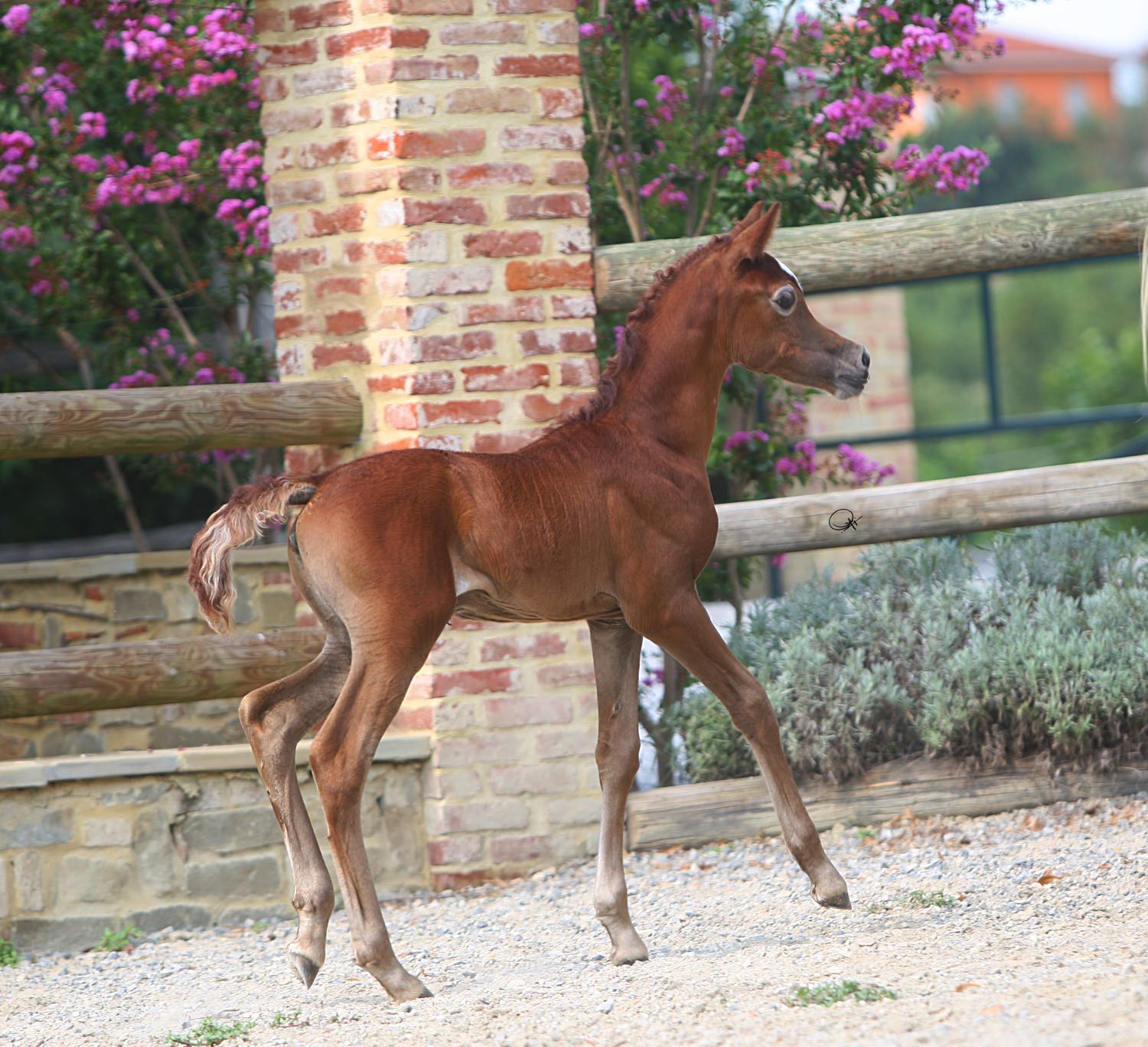
Photo: Gigi Grasso
